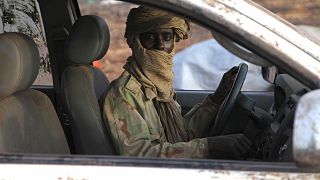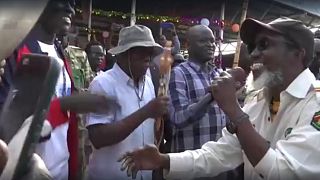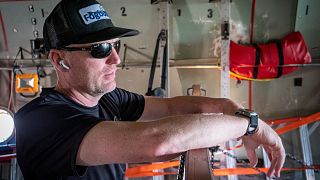South Sudan
Tensions regularly arise between shepherds and farming communities during the migration season in South Sudan.
Recently, farming communities have been complaining about the arrival of shepherds on their land. This is not without consequences on their cohabitation.
Displaced pastoralists armed with guns have been migrating onto lands occupied by farming communities, in recent years, stoking a new series of conflicts in the war-torn nation and threatening food supplies.
Cattle often destroy crops and farmers kill cattle threatening their harvests whenever herders move their animals in search for water and pasture.
To this end, the UN Mission in South Sudan (UNMISS) has brought together shepherds and farmers in Tali, about 200 kilometres from Juba, to agree on how to resolve these conflicts .
The meeting brought together communities from five bordering regions – Terekeka, Amadi, Gok, Eastern and Western Lakes to reach an agreement that regulates cattle migration to prevent conflict in future.
It also identifies water resources and grazing lands and sets out compensation rules for the destruction of crops and beehives by cattle as well as theft or killings of livestock.
“It’s only the cattle keepers who are having arms and are making the farmers afraid of them. But for the farmers they are the losers because whenever these cattle camps come to the areas and destroy their crops, so they also cattle keepers harass them with their arms so they cannot say anything,” said Charity Micah Dawich, Secretary-General of the Joint Border Peace Committee.
“Sometimes, when we get to the host community, our cows eat crops cultivated by farmers not knowing that these are for humans. It causes many problems and we are forced to pay a heavy fine – usually a cow or two. The farmers also slaughter our cattle as revenge,” said David Achiek, Machar, who keeps cattle.
Fighting erupted in South Sudan in December 2013, two years after the country declared independence from Sudan.
The U.N. says the civil war has killed more than 10,000 people, caused over a million to flee and driven the country of 11 million towards famine.
The UN backed agreement also bans pastoralists from carrying guns, and obliges them to inform the local authorities about their movements.
“They collect the arms but you still see those arms making their way back into the hands of some cattle keepers and you wonder why,” said Machar.
The increased movement of livestock has led to diseases including East Coast Fever, foot-and-mouth disease spreading to previously uninfected areas, in the past.
Following independence, a political battle erupted in 2013 between supporters of President Salva Kiir and his former deputy Riek Machar and peace talks have shown little sign of progress.
Reuters













01:39
Sustainable development financing conference opens in Seville
01:10
Young South Sudanese player selected for NBA basketball team
01:13
DRC and Rwanda to sign peace agreement on 27 June
01:41
UN warns of looming famine in Sudan, Gaza and 3 other global hunger hotspots
01:51
In this Moroccan crocodile park, children learn about the environment
01:58
South Sudan celebrates International Day of United Nations Peacekeepers